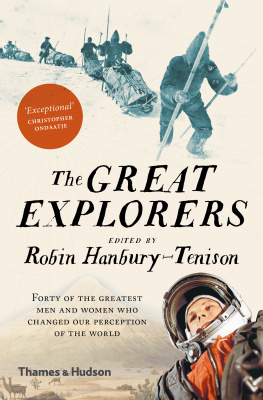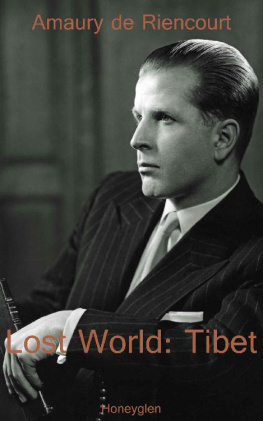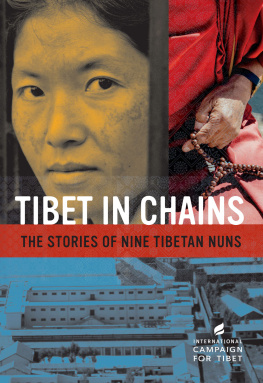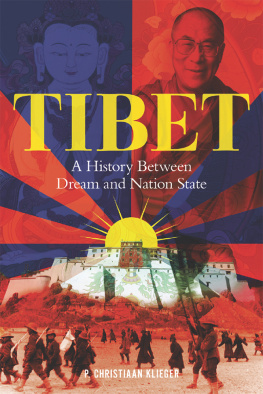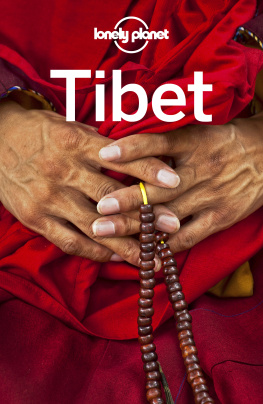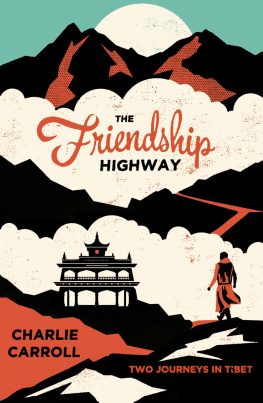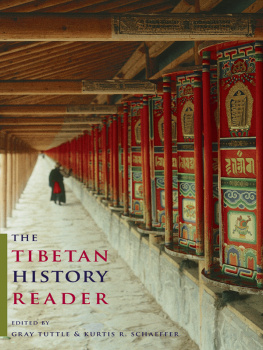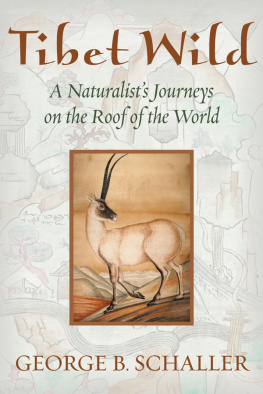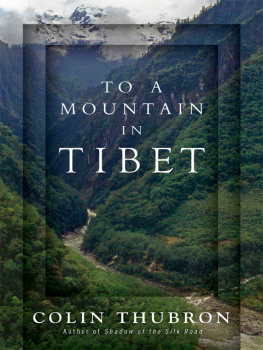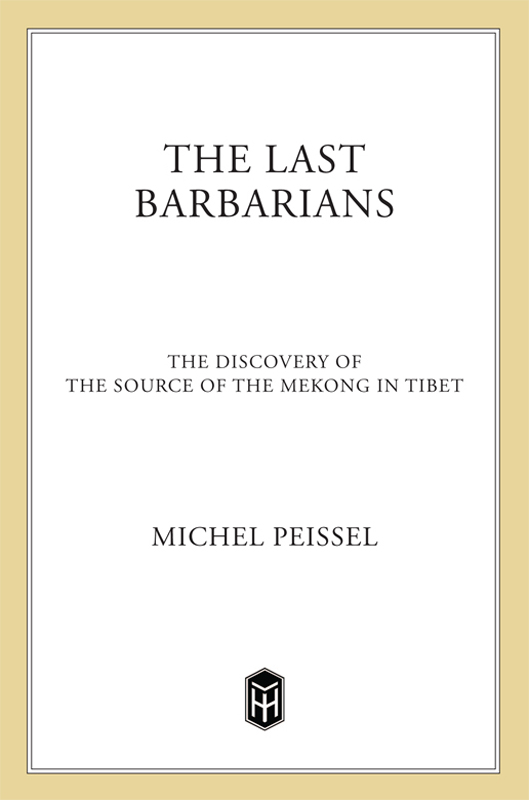Contents
Guide

The author and publisher have provided this e-book to you for your personal use only. You may not make this e-book publicly available in any way. Copyright infringement is against the law. If you believe the copy of this e-book you are reading infringes on the authors copyright, please notify the publisher at: us.macmillanusa.com/piracy.
C ONTENTS
To Jacques Falck and Sebastian Guinness
We shall not cease from exploration
And the end of all our exploring
Will be to arrive where we started
And know the place for the first time.
T. S. ELIOT
Tibetan is a written phonetic language. The spelling of Tibetan names respects archaic phonetic traditions; as a result, to use classical Tibetan spelling can be very misleading for everyone but scholars. I have therefore transcribed Tibetan names using the rendition of their modern pronunciation as adopted for over two centuries by Western travelers. On rare occasions, when necessary for precisions sake, I have added or used the Tibetan spelling of certain place names.
It appears unwise to use the often-fanciful spellings found on Chinese maps, which would acknowledge the rewriting of town names in the wake of a strongly contested military takeover. Furthermore, the transcription of Tibetan names into Chinese often produces quite unrecognizable results.
On the seventeenth of September, 1994, at 6:30 P.M ., riding a small black horse in the company of Dr. Jacques Falck, the Honorable Sebastian Guinness, the Chinese mountain guide Ling, and a Tibetan muleteer, I reached a natural amphitheater from which oozed and trickled three little streams, streams that united to form what some twenty-eight hundred miles downstream is known as the mother river of Asia. We had discovered the source of the Mekongan act as banal as it proved to be magical. There was little or nothing to see. The true importance of our discovery was all in the mind, for we had reached one of those rare sacred places where myth and reality meet, where the dream world and the true world become one.
I was there leading our small party, a man of fifty-seven, because ever since childhood I had been unable to distinguish between dreams and reality. As a result, I never really grew up, and as the years went by I became increasingly involved in projects that required putting aside reason in favor of passion. This form of rashness led me all over the world in quest of those lost horizons that we believe exist out there somewhere, just beyond our reach, and which we all secretly crave.
With each new expedition I had come to realize that dreams very often come true.
* * *
It was the second of September when Jacques Falck and I boarded the flight from Paris to Beijing. An airplane ticket to the unknown looks very much like an ordinary ticket, yet I knew that before I would need the return stub I would be a different person.
I will try here to record the events as they happened, well aware that to write about them is to travel all over again in ones head, straying down the mysterious paths of memory in which past, present, and future intermingle with fact and fiction. Inevitably I will wander off course, because nothing is ever as simple as it appears, and ones perception of even the simplest of facts is disturbed by ones memories.
Excitement, as opposed to boredom, is, I feel, the motivating factor of most of my journeys. It is not that I am often bored; it is that I am afraid of being bored, a feeling that swept over me for the first time at the age of eight. I was then living in tame old England, the middle child of a middle-class family in the middle of Britain. My life was already crammed with the boring routine of school, a nightly bath before dinner, and early to bed.
The only excitement I got came from the stories that my nanny read to me, drawn from the Victorian lore that was then deemed acceptable and proper. Those were still the days of empire, the British Empire that circled my globe in pink and was interrupted only here and there by the pathetically smaller French Empire in blue-gray. A French boy living in England, I managed to take pride in both. At school I rooted for France, a land I did not even recall, having left it in my mothers arms to join my father, a diplomat stationed in London, at the outbreak of World War II. Later, at school in France, I rooted for Britain. In the meantime, the only excitement I had was in hearing accounts of the great Victorian explorers who, for queen and country, were allowed to stray from the rigid decorum of their habitual routines to joust with the unknown.
My heroes were Scott, Mallory, and others who died for the sport of it all, their lives nobly wasted in quest of that undescribable and, today, unfashionable thing called glory.
Today people seek fame and fortune rather than glory, but I was seeking neither as I took my seat on the China Airlines flight from Paris to Beijing. That such a flight existed would have amazed Dutreuil de Rhins, the French explorer who had set out from Paris to discover the source of the Mekong exactly a century before me, never to return.
Is there really anything left to explore? my friends would ask. I was well aware of the paradox, that in our age of space travel there should be anything on earth left undiscovered. All my life I had been called an explorer, a dubious title that I hated and that made people smile kindly and look down on me as something of a simpleton.
Yet I am an explorer. The name itself conjures up visions of the past: although Neil Armstrong and the other astronauts have every right to be considered the greatest explorers of all time, somehow nobody thinks of them that way. Most people think instead that explorers are old-fashioned or completely obsolete because there is no need for them anymore.
To explore or to discover, when applied to geography, has a very specific and slightly racist meaning. Did Columbus discover America and explore the New World? In our age of belated remorse, some people would say no, that Columbus did not discover America, because it was already known to the Indians.
What does to discover actually mean? In political terms, it has been defined traditionally as the first publication by a European of the existence of a place, people, plant, or creaturethe notion of European having been generously extended of late to include Americans and Japanese.
The discoverer, therefore, is the first explorer to publish and publicize what hes found, not just the first to find it. Thus, the Vikings may have reached America first, but they failed to publicize the fact except among themselves, in the Icelandic sagas. Perhaps they failed to appreciate (as Columbus did later) that what they had discovered was a New World. When Amerigo Vespucci realized that it was and coined the phrase, the entire territory that had been discovered was given his name.
There are many places on earth still to be explored, and many undiscovered plants, insects, mammals, and reptiles, not to mention viruses and bacteria. But few people were willing to take my word for it, and I had a lot of trouble persuading anyone that the source of the Mekong, Asias third-largest river and one of the worlds most famous, was one of those places.
Youre joking. When I brought up the subject, people tended to laugh in disdain and walk away. And it was even harder in the end (and it took longer) to persuade the world that we had really discovered the source of the Mekong, once we had done it.


